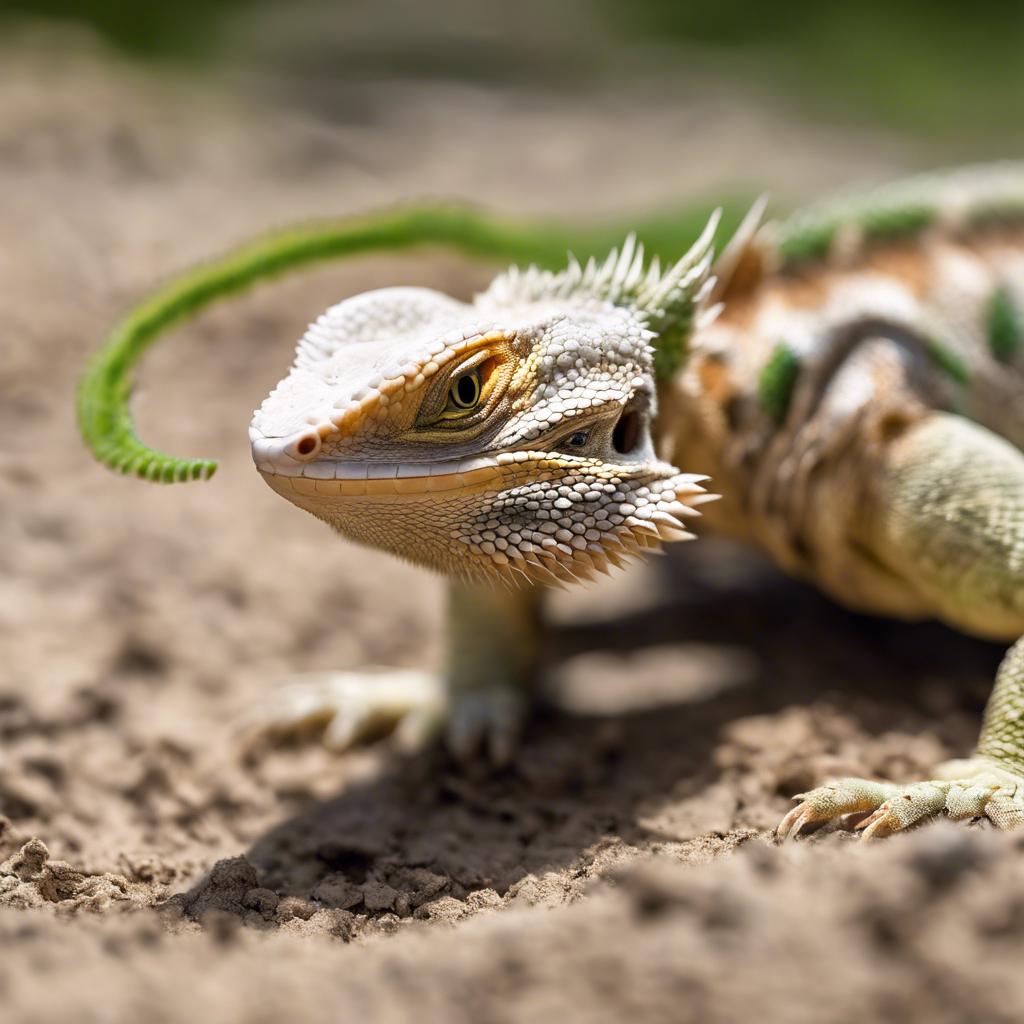Bearded dragons are fascinating reptiles that make popular pets due to their unique appearance and docile nature. As responsible pet owners, it is important to provide them with a balanced diet that meets their nutritional needs. In this blog post, we will focus on one particular food item that can be included in a bearded dragon's diet – hornworms. We will discuss the nutritional value of hornworms, how many hornworms a bearded dragon can eat, the feeding frequency, and potential risks of overfeeding. By the end of this article, you will have a better understanding of how to incorporate hornworms into your bearded dragon's diet.
Key Takeaways
- Bearded dragons require a balanced diet that includes a variety of insects and vegetables.
- Hornworms are a nutritious insect that can be added to a bearded dragon's diet.
- Hornworms are high in protein, calcium, and moisture, making them a great addition to a bearded dragon's diet.
- Bearded dragons can eat up to 10 hornworms per feeding, but it's important to monitor their intake to avoid overfeeding.
- To prepare hornworms for feeding, they should be kept in a well-ventilated container with fresh food and water.
Bearded Dragon Diet
A balanced diet is crucial for the health and well-being of bearded dragons. In the wild, they are omnivorous, meaning they eat both plant matter and insects. As pets, it is important to replicate their natural diet as closely as possible. A balanced diet for bearded dragons should consist of a variety of vegetables, fruits, and insects. Vegetables such as collard greens, kale, and mustard greens are excellent choices as they are high in calcium and other essential nutrients. Fruits like berries and melons can be given as treats in moderation.
What are Hornworms?
Hornworms are the larvae of the hawk moth or sphinx moth. They are commonly found in North America and are often used as feeder insects for reptiles and amphibians. Hornworms get their name from the horn-like protrusion on their posterior end. They have a bright green coloration with white diagonal stripes along their body. Hornworms are known for their rapid growth rate and can reach lengths of up to 4 inches.
Nutritional Value of Hornworms
Hornworms are highly nutritious and provide several essential vitamins and minerals that are beneficial for bearded dragons. They are an excellent source of protein, which is essential for growth and muscle development. Hornworms also contain high levels of calcium, which is important for bone health and preventing metabolic bone disease. In addition, they are rich in vitamins such as vitamin A, vitamin B complex, and vitamin C. These vitamins play a crucial role in maintaining a healthy immune system and promoting overall well-being.
How Many Hornworms Can a Bearded Dragon Eat?
The number of hornworms that a bearded dragon can eat depends on several factors, including the age, size, and activity level of the dragon. As a general guideline, adult bearded dragons can be fed 2-3 hornworms per day, while younger dragons may only need 1-2 hornworms. It is important to monitor your dragon's weight and adjust the number of hornworms accordingly. Overfeeding can lead to obesity and other health issues, so it is important to exercise moderation.
Feeding Frequency of Hornworms

Hornworms can be fed to bearded dragons as part of their regular diet. However, it is important to provide a variety of other insects and vegetables to ensure a balanced diet. Feeding hornworms once or twice a week is usually sufficient. This allows for variety in their diet and prevents them from becoming too reliant on one type of food. It is also important to gut-load the hornworms before feeding them to your dragon. Gut-loading involves feeding the hornworms with nutritious foods such as leafy greens or commercial gut-loading diets to enhance their nutritional value.
Preparing Hornworms for Feeding
Before feeding hornworms to your bearded dragon, it is important to prepare them properly. Hornworms should be kept in a well-ventilated container with appropriate bedding such as paper towels or egg cartons. They should be provided with fresh food and water daily to ensure their health and nutritional value. When it comes time to feed your dragon, you can either hand-feed the hornworms or place them in a shallow dish. Some dragons may prefer to chase and catch their food, while others may prefer to have it presented to them.
Potential Risks of Overfeeding Hornworms
While hornworms are a nutritious food source for bearded dragons, it is important to exercise moderation when feeding them. Overfeeding hornworms can lead to obesity, which can have serious health consequences for your dragon. Obesity can put strain on their organs and joints, leading to a decreased lifespan and overall quality of life. It is important to monitor your dragon's weight and adjust their diet accordingly. If you notice that your dragon is becoming overweight, it may be necessary to reduce the number of hornworms or other high-fat foods in their diet.
Bearded Dragon Care Tips
In addition to providing a balanced diet, there are several other factors to consider when caring for a bearded dragon. Proper housing is essential, as they require a spacious enclosure with appropriate lighting and temperature gradients. Bearded dragons are ectothermic, meaning they rely on external heat sources to regulate their body temperature. A basking spot with a temperature of around 95-105°F should be provided, as well as a cooler area for them to retreat to. UVB lighting is also crucial for their health, as it helps them metabolize calcium and prevents metabolic bone disease.
In conclusion, hornworms can be a valuable addition to a bearded dragon's diet due to their high nutritional value. They provide essential vitamins and minerals that contribute to overall health and well-being. However, it is important to feed hornworms in moderation and provide a variety of other foods to ensure a balanced diet. By following these guidelines and providing proper care, you can help your bearded dragon thrive and live a long, healthy life.
If you're wondering how many hornworms a bearded dragon can eat, you'll find all the answers in this informative article from Reptile Wizard. They discuss the dietary needs of bearded dragons and provide insights into the benefits and risks of feeding them hornworms. To learn more about this topic, check out their article “Can Bearded Dragons Eat Black Olives?” It's a must-read for any bearded dragon owner looking to diversify their pet's diet.
FAQs
What are hornworms?
Hornworms are the larvae of the hawk or sphinx moth. They are commonly used as a food source for reptiles and other pets.
Can bearded dragons eat hornworms?
Yes, bearded dragons can eat hornworms. They are a good source of protein and nutrients for these reptiles.
How many hornworms can a bearded dragon eat?
The number of hornworms a bearded dragon can eat depends on its size and age. As a general rule, adult bearded dragons can eat up to 10 hornworms per feeding, while younger dragons should be fed fewer.
Are hornworms a good source of nutrition for bearded dragons?
Yes, hornworms are a good source of nutrition for bearded dragons. They are high in protein and calcium, which are important for the growth and health of these reptiles.
How often should bearded dragons be fed hornworms?
Bearded dragons should be fed hornworms as part of a varied diet. They can be fed once or twice a week, depending on the dragon's age and size. It is important to offer a variety of foods to ensure that the dragon is getting all the nutrients it needs.

